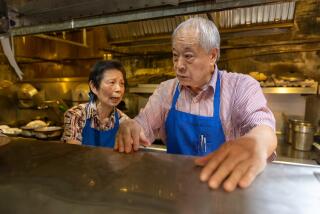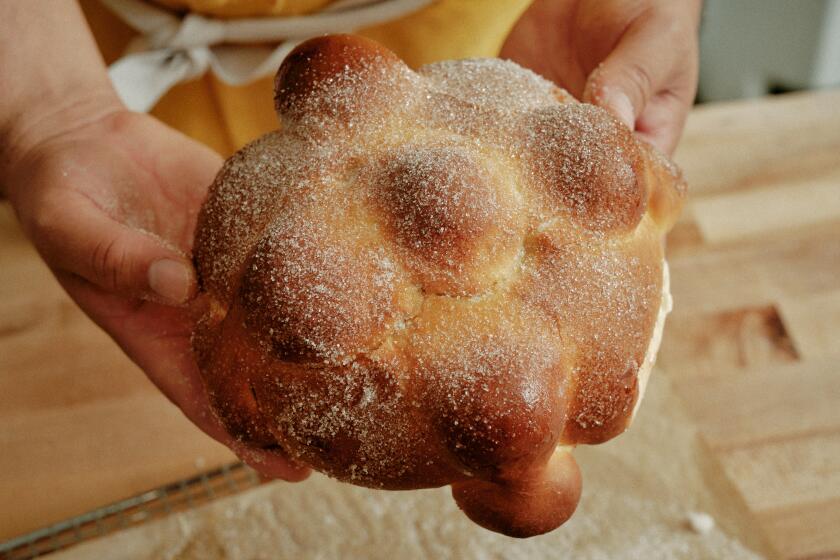From China, With Love
It’s the last hand of the west,” Irene Rozanski announces. Yellow mah-jongg tiles pour onto the table, clinking and spinning as eight arms reach to swirl and shuffle them. On the east, north and south sides of the table are Golda Lazarovich, Goldie Miller and Clara Beck.
In a city accustomed to immigration and dramatic transformations, these women share an extraordinary history. Born of Russian-Jewish parents, they grew up in the Chinese city of Harbin. Today, in Raissa Goldin’s West Hollywood apartment, with children’s pictures atop the dark wooden furniture brought from Shanghai 40 years ago, they are playing mah-jongg.
Raissa disappears into the kitchen--Golda is playing her hand while she prepares lunch--and the four women resume their game. Conversation is minimal. The 136 yellow plastic tiles of the centuries-old Chinese game are stacked, sorted, claimed and discarded as they mutter to themselves and each other in Russian. They follow the strict Chinese rules they learned as children, 60 or 70 years ago.
“The first 50 years, it’s hard to understand,” laughs Goldie, who began playing as a young wife in Shanghai.
“Poong,” Clara says, rearranging her hand and reaching for a tile that completes a set of three. After each hand, scores are added, chips traded. “We usually win or lose $4 to $7 a day,” Irene says, though the intensity of the table scarcely reflects the small stakes. “Poong!” they cry, as they collect their tiles.
The game stops for lunch.
“Raissa’s the master chef,” says Irene. The others nod in agreement. “It’s all homemade,” Golda says, passing platters of chicken cutlets, homemade lox, marinated mushrooms, radishes, avocados (a California touch), sliced melons, cherries, peaches, mandelbrot and chocolate-laced halavah--the Russian food Raisa learned to prepare in China. The women--gray hair neatly coiffed, dressed casually in blouses and slacks--eat and discuss shopping and schedules. It is difficult to conjure their distant days in Harbin, when, as the daughters of prospering Russian immigrants in a booming Chinese railroad town, they took up mah-jongg. Raissa, at 81 the oldest of the group, fills in the blanks. “In Harbin, the women didn’t work. Everyone had help: a cook, an amah to do the laundry, a baby amah for the children, ‘boys’ who helped with everything; they polished the silver. There was so much silver: real sterling, silver trays, silver platters, silver ashtrays. Life was very easy. We lived like millionaires.” It didn’t last. The Japanese occupied Manchuria in 1931, followed by Chinese civil strife and the Second World War. Turmoil replaced ease and opulence. After the war, the women began arriving in America. They raised families, found jobs as salesgirls, bookkeepers, seamstresses, and still found time for mah-jongg. “Since we’ve been here there’s always been some kind of game,” Raissa says. “But we used to work and were busy with our families. We played at night--sometimes until 3 in the morning. Then I’d drive home and go to work the next day. I was young then,” she adds. The tiles are no longer bamboo and ivory, but the hours of fast-paced play on a warm summer afternoon almost evoke long-ago Harbin. Finally the game winds down. There are murmurs in Russian about the inadequacies of their final hands.
“There’s always a next time,” says Goldie, tallying points.
“Absolutely,” says Irene.
Reaching over to collect the tiles, Raissa declares: “There’s always another time.”
More to Read
Eat your way across L.A.
Get our weekly Tasting Notes newsletter for reviews, news and more.
You may occasionally receive promotional content from the Los Angeles Times.









